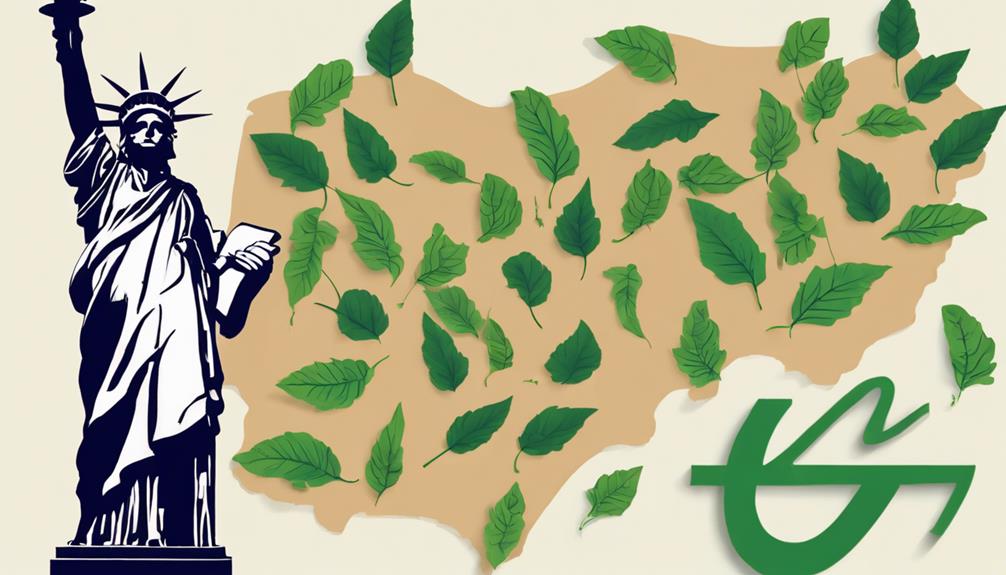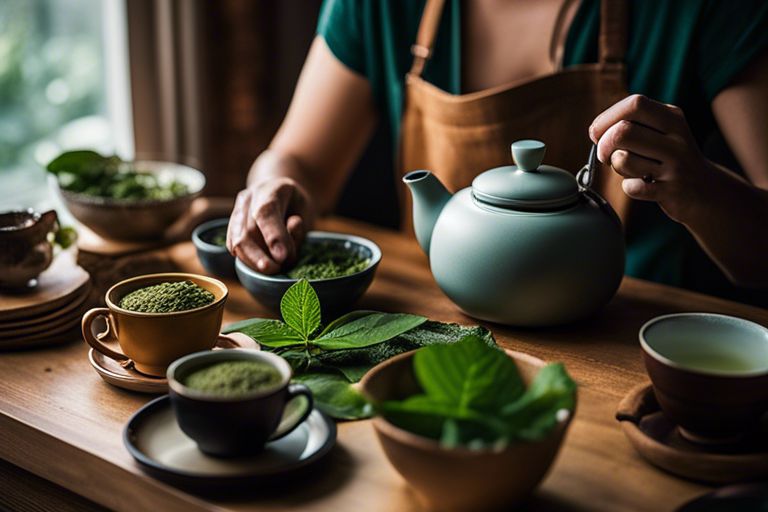Deprecated: mb_convert_encoding(): Handling HTML entities via mbstring is deprecated; use htmlspecialchars, htmlentities, or mb_encode_numericentity/mb_decode_numericentity instead in /home/users/kratomfiles/www/kratomfiles.com/wp-content/plugins/quick-adsense-reloaded/includes/template-functions.php on line 3552
So, you've heard about this intriguing substance called kratom and you're wondering about its legal status in Canada. Well, buckle up because the world of kratom in Canada is a bit of a rollercoaster ride. While it may be legal for personal use and possession, the sale and distribution of kratom are strictly prohibited under Canadian federal law. But here's the twist – there are conflicting opinions on the legality and potential benefits and risks of kratom among politicians, researchers, and doctors. So, what's the deal with kratom in Canada? Let's dive in and explore the fascinating world of kratom's legal status up north.
Kratom's Legal Status in Canada

The legal status of kratom in Canada is a complex and nuanced topic that requires careful examination of federal laws and regulations. While it is legal for personal use and possession, the sale, distribution, and other activities involving kratom are illegal under Canadian federal law. Health Canada, the federal department responsible for public health, considers kratom an unauthorized health product. According to the Food and Drugs Act, unapproved sale for human or animal consumption is prohibited.
In Canada, kratom is classified as a health supplement. However, it is important to note that sale for consumption is still prohibited. Health Canada has not authorized any kratom products for sale as a drug, food, or natural health product, indicating that the potential health risks associated with kratom use have not been sufficiently researched and understood.
The decision to regulate kratom in this manner is based on the concern for public health and safety. Health Canada is responsible for ensuring that all health products available to Canadians are safe and effective. By prohibiting the sale of kratom for consumption, the government aims to protect individuals from potential adverse effects that may result from its use.
Understanding Kratom Laws in Canada
To gain a comprehensive understanding of kratom laws in Canada, it is essential to delve into the regulations surrounding its sale and consumption, as well as the concerns raised by health authorities regarding its potential health risks.
- Kratom is legal for personal use and possession in Canada, but the sale, distribution, and other activities involving kratom are illegal under Canadian federal law. This means that individuals can possess kratom for personal use, but cannot buy or sell it.
- Health Canada considers kratom an unauthorized health product, and unapproved sale for human or animal consumption is prohibited under the Food and Drugs Act. This means that selling kratom as a consumable product is not allowed, as it has not been approved by Health Canada for such use.
- Despite its legal status, kratom is readily available in Canada. It is often marketed as incense or an ingredient for aromatherapy. Online retailers also sell kratom in various forms, such as powder, full leaf, and stem, bypassing the restriction on its consumable use.
It is important to note that there are conflicting views on the legality of kratom among politicians, researchers, and doctors. Concerns exist about the side effects of mitragynine, the active compound in kratom, which has led to opposition to its approval as a consumable product.
Selling kratom in consumable forms could result in criminal prosecution. Therefore, if you are seeking kratom online, it is crucial to seek reliable information and education to ensure you are aware of the legal implications and potential health risks associated with its use.
Where to Buy Kratom in Canada

When looking to purchase kratom in Canada, it is important to find reputable vendors who disclose their sourcing and testing processes to ensure the highest quality and safety of the product. While kratom is legal for personal use and possession in Canada, the sale, distribution, and other activities involving kratom are illegal under Canadian federal law. However, you can still buy kratom online from trustworthy vendors who abide by the regulations.
One reputable vendor to consider is Kratom Earth, an online retailer that offers a variety of kratom products. They prioritize the health and well-being of their customers by ensuring their products undergo rigorous testing for contaminants such as heavy metals and pathogens. By providing transparency in their sourcing and testing processes, Kratom Earth ensures that you are getting a safe and reliable product.
It is important to note that while kratom is often used as an alternative therapy for chronic pain and other health conditions, it is always recommended to consult with a healthcare provider before using any new substance. They can provide guidance on the potential risks and side effects associated with kratom, especially if you have any underlying health conditions or are taking other medications.
As the opioid epidemic continues to impact communities around the world, individuals are seeking alternative therapies for pain management. Kratom has gained popularity as a natural option, but it is crucial to approach its use with caution. By purchasing kratom from reputable vendors who prioritize product safety and quality, you can make informed decisions about your health and well-being.
Medical Uses of Kratom in Canada
While the legal status of kratom in Canada allows for personal use and possession, it is important to explore the potential medical uses of this substance in order to understand its therapeutic benefits and risks. Limited reliable medical data suggests that kratom may have potential benefits in treating certain conditions.
- Pain Relief: Kratom has been traditionally used in Southeast Asia as a natural remedy for chronic pain. Some users claim that kratom products can provide pain relief similar to opioids, but without the same level of dependence and addiction.
- Opioid Addiction Withdrawal: Kratom has gained attention as a potential alternative to ease opiate withdrawal symptoms. Some individuals have reported success in using kratom to manage their withdrawal symptoms and transition to a drug-free life.
- Mental Health: Kratom has been used as a complementary and alternative herbal product to address mental health conditions such as depression and anxiety. Some users claim that kratom can improve mood and provide a sense of well-being.
However, it is important to note that the research on kratom's medical benefits is limited and inconclusive. Health risks associated with kratom use, especially at high doses, have been reported. The United States Food and Drug Administration has issued warnings about the potential dangers of kratom, including liver damage, addiction, and even death.
In Canada, Health Canada considers kratom an unauthorized health product, and companies marketing kratom products for consumption have faced legal consequences. It is essential to seek reliable information and consult with healthcare professionals before using kratom for any medical purpose. Further research is needed to fully understand the potential benefits and health risks of kratom in Canada.
Potential Risks and Benefits of Kratom Use in Canada

Kratom use in Canada carries potential risks and benefits that warrant careful consideration and further scientific investigation. While kratom is considered legal in Canada, there are risks associated with consuming kratom products. It is important to understand the potential effects, both positive and negative, before using kratom.
To help you better understand the potential risks and benefits of kratom use, let's take a closer look at the effects of consuming kratom products. The active compounds in kratom, known as alkaloids, interact with opioid receptors in the brain, producing pain-relieving and sedative effects. However, these effects can vary depending on the dosage and strain of kratom used.
On one hand, some individuals claim that kratom has helped them manage chronic pain, reduce opioid withdrawal symptoms, and alleviate depression. These potential benefits have led to increased interest in kratom as a possible alternative to traditional opioid medications.
On the other hand, it is important to acknowledge that kratom has been classified as a drug of abuse in some countries. There have been reports of adverse effects associated with kratom use, including nausea, vomiting, dizziness, and even liver toxicity in rare cases. Additionally, long-term use of kratom may lead to dependence and addiction.
To summarize the potential risks and benefits of kratom use in Canada, refer to the table below:
| Potential Benefits | Potential Risks |
|---|---|
| Pain relief | Nausea |
| Opioid withdrawal management | Vomiting |
| Depression management | Dizziness |
| Liver toxicity | |
| Dependence and addiction |
While kratom may offer potential benefits, it is crucial to approach its use with caution and consult with healthcare professionals. More scientific research is needed to fully understand the effects and potential risks associated with kratom use.
What Are the Legalities Surrounding Kratom in Canada?
Kratom legality in Canada is a complex issue. While kratom is not classified as a controlled substance, Health Canada has not approved it for consumption. However, it can be legally sold as an incense or for external use. It’s important to stay updated on the current regulations regarding kratom in Canada.
What is the Legal Status of Kratom in Canada?
The legal status of kratom in Canada is currently undefined. While kratom is not listed as a controlled substance and is legal to buy and sell, Health Canada has issued warnings about the potential risks of using kratom, indicating that its status is still being evaluated. The legal status of kratom in California, however, is that it is currently legal to purchase and possess for personal use.
What is the current legal status of Kratom in Canada?
The kratom legality in Georgia is a complex issue, and it also affects its status in Canada. As of now, kratom is legal in Canada for personal use, but it is subject to regulations. However, it is important to stay updated on any changes in the legal status of kratom.
Frequently Asked Questions
Is Kratom Legal in Florida?
Kratom is legal in Florida, allowing you to possess and use it without legal repercussions. However, it's important to be cautious and informed about kratom's effects and usage guidelines. While its legality may vary in other states, you can purchase kratom online from trusted suppliers. Kratom offers various strains with different benefits, often used as a natural remedy and for pain management. Remember to prioritize safety precautions and be aware of potential side effects and addiction risks. Additionally, consider the impact of kratom on mental health.










